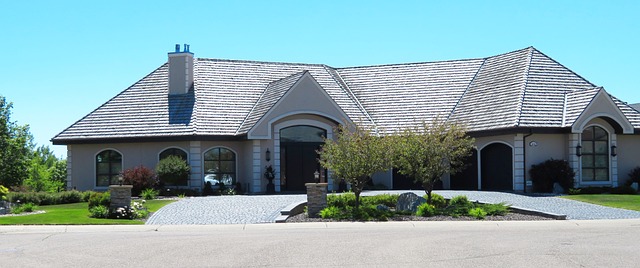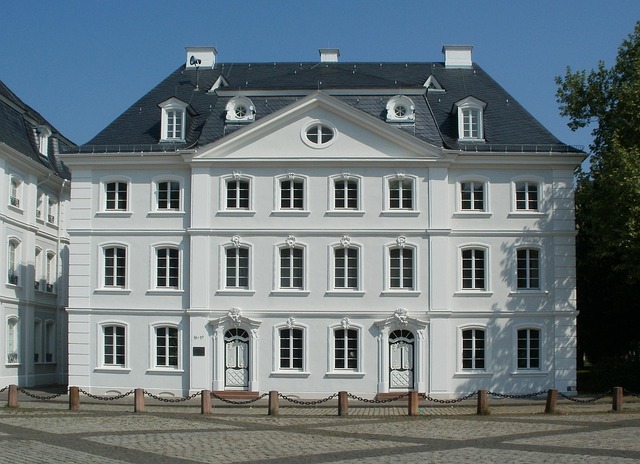The Executive Condominium (EC) in Singapore offers a transitional housing option for couples and families who do not yet qualify for public housing but find private condominiums too expensive. ECs provide larger living spaces with condominium amenities such as pools, gyms, and playgrounds. After five years of ownership, these units can be privatized into fully private condominiums, and after ten years, they revert to standard HDB status under the Home Protection Scheme (HPS), which ensures long-term security for residents. ECs appreciate in value over time due to factors like location and market demand, making them attractive for both homeowners and investors. The government regularly updates eligibility criteria to maintain housing balance, so potential buyers must stay informed. After five years, ECs transition to private housing status, affecting their resale value and market dynamics, with various factors influencing their desirability. The Home Protection Scheme plays a pivotal role in providing a stable living arrangement for residents during this transition. Keywords: Executive Condominium (EC) benefits, Singapore housing market, home ownership transition, long-term security, property appreciation, Home Protection Scheme (HPS).
Executive Condominiums (ECs) in Singapore offer a unique blend of public and private housing benefits, catering to the aspirations of young families. As these residences mature beyond the five-year mark, their trajectory in the property market becomes a subject of keen interest among homeowners and investors alike. This article navigates the multifaceted journey of ECs post-five years, examining the various factors influencing their value, resale potential, and the lifestyle they offer. From eligibility criteria to capital appreciation, understanding the maturation process of an EC is pivotal for homeowners considering resale or upgrades. We delve into the nuances of the EC ecosystem, including government policies, market trends, and community development, providing a comprehensive guide to maintaining, selling, and maximizing the value of your Executive Condominium after five years.
- Overview of Executive Condominiums (ECs) in Singapore
- Eligibility Criteria for ECs After Five Years
- The Maturation of an EC's Lease
- Resale Considerations and Market Trends Post-Five Years
- Home Protection Scheme and Its Role in EC Ownership
Overview of Executive Condominiums (ECs) in Singapore

Executive Condominiums (ECs) in Singapore serve as a unique housing option tailored for couples and families who may not immediately qualify for a public housing flat but are unable to afford a private condominium. These hybrid housing models offer the benefits of both public and private housing; they provide larger living spaces compared to HDB flats and come with condominium facilities such as swimming pools, gyms, and playgrounds. Upon acquiring an EC, owners enjoy the initial 10 years of exclusive use before the unit reverts to a standard HDB flat. After five years of occupation, the property value may increase substantially due to appreciation, making it an attractive investment for many. This appreciation can be attributed to various factors, including location, demand for such housing types, and the maturing of the estate.
Moreover, after five years, ECs have the option to apply for privatization. Should they choose this route, the unit will fully transition into a private condominium. This process involves applying to the Singapore government, and upon approval, the property is deregulated and can be sold on the open market without the associated public housing restrictions. The EC scheme thus provides a flexible pathway for homeowners, allowing them to upgrade their homes as their financial circumstances improve. Over the years, ECs have been instrumental in addressing the housing needs of the middle-income group in Singapore, offering them a stepping stone to higher property ownership. With the combined features of public and private housing, ECs like the Executive Condominium Ec represent a significant contribution to Singapore’s diverse living options.
Eligibility Criteria for ECs After Five Years

An Executive Condominium (EC) in Singapore offers a unique housing solution for couples and families who seek a step up from public housing but do not wish to commit to the higher prices of private properties. After five years of ownership, ECs may encounter changes in their eligibility status. Initially, owners must meet certain criteria to purchase an EC, including being Singapore citizens, at least one of the applicants must be a first-time flat buyer, and the income ceiling must not exceed $14,000 per month for a family. Fast forward five years, and the eligibility criteria may shift. For instance, EC residents who wish to sell their units on the open market must ensure that they have fulfilled the minimum occupation period of five years. Additionally, they must comply with the resale levy regulations if they have previously received the CPF Housing Grant for their EC purchase. The Singapore government regularly reviews and updates these eligibility criteria to maintain the balance between public and private housing supply and to cater to the evolving needs of residents. Prospective EC owners should stay informed about these changes, as they can significantly affect one’s ability to buy, sell, or upgrade their EC unit after the five-year mark.
The Maturation of an EC's Lease

An Executive Condominium (EC) is a unique housing type in Singapore that caters to the needs of both families and individuals who aspire to upgrade from public to private housing. Over a span of five years, an EC undergoes significant transformations, particularly concerning its lease structure. Initially, ECs are sold with a 99-year leasehold tenure, similar to most private condominiums. However, as the years progress, particularly after the fifth year, the lease matures. This maturation process sees the unit’s lease becoming fully functional, with each year of occupation counting towards the total 99-year lease term. Owners of EC units can expect their leases to be recognized in full, providing them with a stable and long-term living arrangement. It’s during this period that the value of an EC can appreciate, as its remaining lease becomes a more tangible asset over time. This aspect is particularly relevant for owners considering resale options post-maturity, as the remaining lease length directly influences the property’s market value. Understanding the maturation process of an EC’s lease is crucial for long-term planning and can significantly impact the investment potential of such properties. Prospective buyers and current residents alike should keep abreast of these changes to make informed decisions about their EC living journey.
Resale Considerations and Market Trends Post-Five Years

When an Executive Condominium (EC) reaches its five-year mark, resale considerations become prominent for existing owners and prospective buyers. The EC’s transition from a public to a private housing entity after this period affects its resale value and market appeal. Potential sellers should be aware that upon reaching the fifth anniversary of its Temporary Occupation Permit (TOP) issuance, an EC loses its eligibility for CPF Housing Grants, which may influence its pricing and attractiveness to first-time homebuyers who rely on these grants.
Market trends post-five years are influenced by the evolving preferences of homeowners and economic factors. The resale value of an EC is often tied to broader housing market dynamics, including interest rates, mortgage loan policies, and overall economic sentiment. Additionally, the location, amenities, and condition of the property play significant roles in its marketability. As the unit ages, maintenance and upkeep become increasingly important to maintain its appeal to a broad range of buyers. Trends such as smart home technology integration and eco-friendly features can also impact an EC’s desirability and potential resale price. Owners looking to sell their units should consider these factors and stay informed about the trends shaping the resale EC market to make well-informed decisions.
Home Protection Scheme and Its Role in EC Ownership

Within the span of five years post-purchase, EC or Executive Condominium owners in Singapore are subject to a unique set of regulations that govern their housing rights and responsibilities. A pivotal aspect of this framework is the Home Protection Scheme (HPS), which plays a crucial role in safeguarding the interests of EC residents. The HPS ensures that owners living in an EC can continue to occupy their units for a non-negotiable period, typically 10 years from the date the EC is granted its status by the Singapore government. This provision is particularly significant for EC owners as it addresses the transition from public to private housing without compromising on home protection. After five years, should an owner wish to sell their unit, they must adhere to the Minimum Occupation Period (MOP) stipulated by the HDB (Housing & Development Board), which aligns with the aforementioned 10-year deferred enforcement period. The HPS thus acts as a buffer for EC residents, providing them with stability and the assurance that their homes are protected against being sold to investors or being converted into private condominiums too quickly. This scheme is integral to the EC ownership experience in Singapore, reflecting the government’s commitment to balanced housing policies that cater to both the needs of new families and the stability of the property market.
After a thorough examination of the lifecycle of an Executive Condominium (EC) in Singapore, it’s clear that the evolution of an EC post-five years is multifaceted. Owners must navigate the changing eligibility criteria and understand the maturation of their unit’s lease to make informed decisions. As an EC’s lease lengthens, its resale value and market appeal are influenced by both real estate trends and the homeowners’ maintenance efforts. The Home Protection Scheme serves as a vital safeguard for long-term ownership, ensuring that these properties remain accessible and secure investments. In conclusion, an EC is more than just a home; it’s a dynamic asset that requires ongoing attention and strategic planning to maximize its potential over the years. Prospective and existing EC owners should carefully consider these factors when evaluating their long-term residency or investment strategy within Singapore’s vibrant property landscape.



